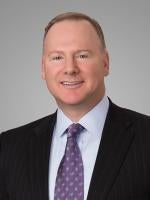On September 15, 2021, by a 3-2 vote, the Federal Trade Commission (“FTC”) decided to withdraw the vertical merger guidelines that had been issued in 2020. In its statement supporting the withdrawal, the majority raised concerns with the consideration of efficiencies, arguing that efficiencies are not referenced in the statute and therefore suspect. Specifically, the majority state that “[u]ntil new guidance is issued, the FTC will analyze mergers in accordance with its statutory mandate, which does not presume efficiencies for any category of mergers. In any merger, the FTC will consider all relevant facts, including but not limited to market structure, to determine whether a merger may lessen competition or tend to create a monopoly.”
Dissent Warns of Greater Divide Between Enforcement at FTC and DOJ
In their dissent, the other two Commissioners chastise the majority for failing to recognize that vertical mergers are not mergers of competitors and for ignoring the well-established “burden shifting framework adopted by the circuit courts recognizing that the procompetitive effects may render a competition-eliminating merger procompetitive on the whole.” In so doing, the dissent argues that the FTC is favoring uncertainty over transparency and, because the guidelines have not been withdrawn by the U.S. Department of Justice (“DOJ”), the FTC has amplified the divide between itself and the DOJ. “The Majority’s decision to withdraw the Vertical Merger Guidelines also adds to the divide between enforcement at the FTC and the [DOJ]. There have long been concerns about different procedures at the agencies and perceived differences in the standards for an injunction, leading to repeated calls to modify the procedures for the FTC’s merger enforcement program. More recently the concerns have led members of Congress to discuss transferring the FTC’s competition authority to DOJ. Unless the DOJ similarly eschews the 2020 Guidelines, a new schism will appear.” In other words, this decision creates an environment in which the standard a vertical merger is held to will differ depending on whether the FTC or the DOJ is reviewing the merger.
Chilling Effect on Merger Activity
The dissent also notes that the withdrawal of the 2020 guidelines, on top of the “other recent attacks on the Hart-Scott-Rodino merger review process, threatens to chill legitimate merger activity and undermine attempts to rebuild our economy in the wake of the pandemic.” Indeed, the cumulative current actions of the FTC have the potential to create a merger process where only the largest and most financially secure organizations—those able to bear the tremendous costs associated with lengthy FTC investigations—will be willing to forge ahead with merger activities, the very situation the majority is purportedly trying to avoid.





 />i
/>i
